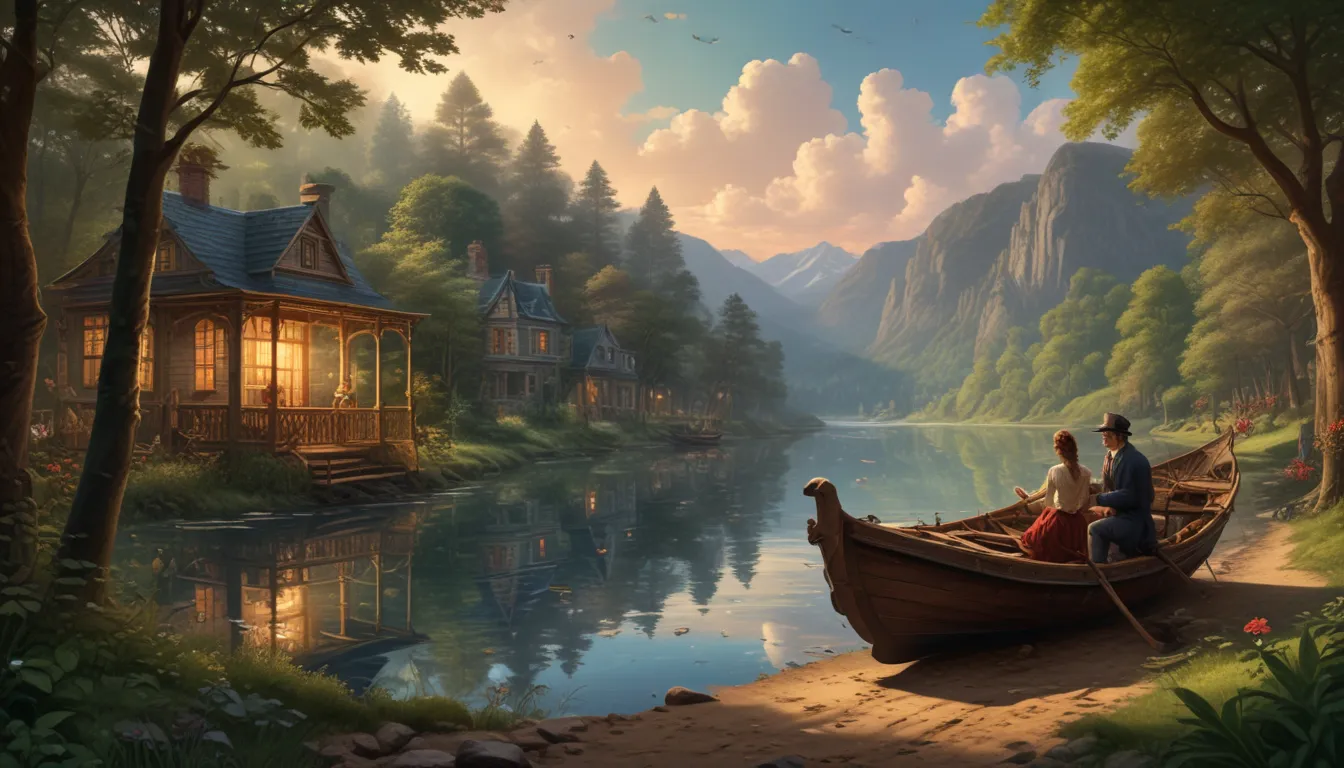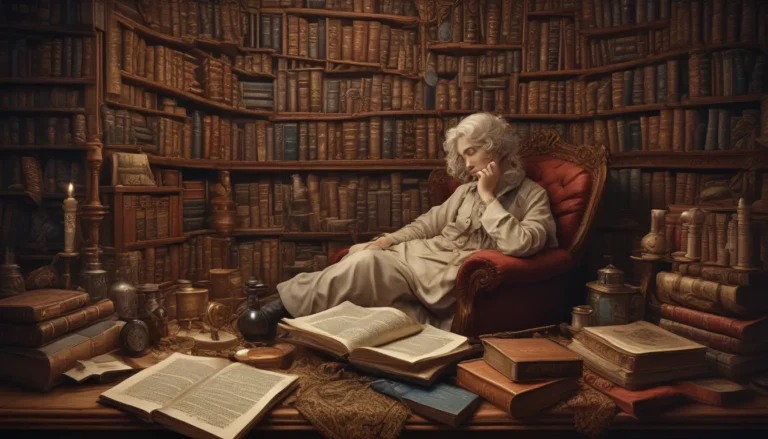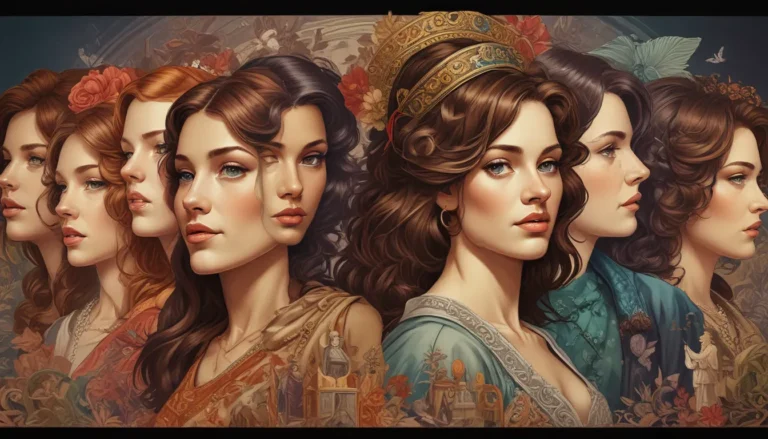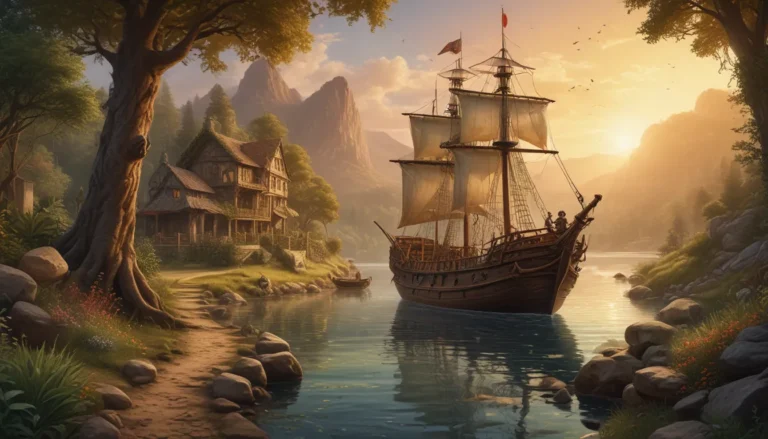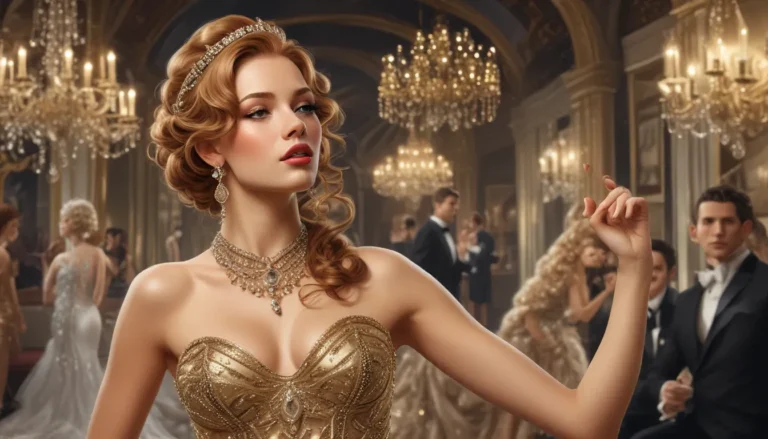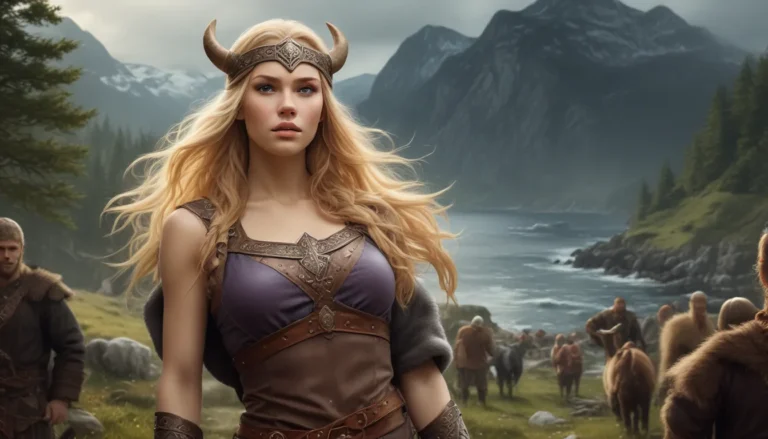The images in our articles may not match the content exactly. They are used to grab your attention, not to show the exact details in the text. The images complement the text but do not replace it.
Venture into the enchanting realm of 19th-century literature, where words paint vivid pictures of life, society, and human emotions from a bygone era. This period, marked by profound changes in both the social and literary landscapes, gave rise to some of the most enduring works in the English language. From romantic idealism to stark realism, the 19th century was a time of intense transformation and innovation in the literary world. Whether you’re a seasoned bibliophile or new to the classics, the following 24 fascinating facts will enrich your appreciation for the depth and diversity of this golden age of literature.
Exploring the Origins of 19th Century Literature
Nineteenth-century literature stands out as a dynamic period in literary history, characterized by a departure from classical forms and the emergence of new genres and themes. This era witnessed the birth of Romanticism, a movement that emphasized emotion, individualism, and nature, laying the foundation for future developments.
-
Romanticism: The late 18th to early 19th centuries saw the rise of Romanticism, which initially emerged as a reaction against the industrial revolution and the Age of Enlightenment’s focus on reason and science.
-
Key Figures: Notable figures in this literary movement include William Wordsworth and Samuel Taylor Coleridge in England, who aimed to make literature more accessible to the common man and to extol the beauty of nature.
Unveiling the Evolution of the Novel in the 19th Century
The 19th century is often hailed as the golden age of the novel, with increased literacy rates and advancements in printing technology making novels more accessible to the general public, leading to a surge in their popularity.
-
Social Critiques: Charles Dickens used his novels to critique the social injustices of his time, employing the novel as a medium for social commentary.
-
Breaking Barriers: The Brontë sisters, writing under male pseudonyms, shattered barriers for women in literature, exploring themes of love, morality, and women’s independence.
-
Rise of Realism: Realism emerged as a dominant literary movement, with authors like Gustave Flaubert and Leo Tolstoy delving into the complexities of everyday life and moral dilemmas.
Exploring the Gothic and Horror Genres in the 19th Century
The 19th century witnessed the rise of the Gothic and horror genres, captivating readers with stories of the supernatural, mystery, and the macabre.
-
“Frankenstein”: Mary Shelley’s “Frankenstein,” published in 1818, is often hailed as the first science fiction novel, blending elements of Gothic horror and Romanticism.
-
Influential Works: Edgar Allan Poe’s tales of mystery and the macabre significantly impacted the horror genre and the development of the detective story.
The Impact of Industrialization on 19th Century Literature
Industrialization brought about profound social and economic changes reflected in the literature of the period.
-
Addressing Social Struggles: Novels began to tackle the challenges faced by the working class and the societal impacts of industrialization, with authors like Elizabeth Gaskell and Charles Dickens at the forefront.
-
Urban-Rural Divide: The contrast between rural and urban settings emerged as a prominent theme, highlighting the dislocation and alienation experienced by many during this era of rapid change.
The Emergence of Women Writers in the 19th Century
The 19th century witnessed a significant rise in the number of published women writers, who often navigated a male-dominated literary landscape.
-
Jane Austen’s Insights: Although Jane Austen’s novels were published anonymously during her lifetime, they offered profound insights into the lives and struggles of women in the early 19th century.
-
Challenging Norms: George Eliot, the pen name of Mary Ann Evans, pushed back against societal norms with her novels, which were among the first to be acknowledged for their literary merit rather than just moral lessons.
The Evolution of Poetry in the 19th Century
Poetry underwent significant transformations during the 19th century, with poets exploring new themes and forms.
-
Romantic Ideals: Poets like John Keats, Percy Bysshe Shelley, and Lord Byron epitomized the ideals of the Romantic movement, celebrating beauty, emotion, and individualism.
-
Victorian Themes: Victorian poets such as Alfred Lord Tennyson and Robert Browning delved into themes of morality, societal issues, and even industrialization, reflecting the complexities of the era.
The Global Influence of 19th Century Literature
The literature of the 19th century resonated beyond Europe, shaping writers and literary traditions around the globe.
-
American Contributions: American authors like Mark Twain and Herman Melville explored themes of identity, freedom, and the human spirit in their works.
-
Russian Intricacies: Russian literary giants like Fyodor Dostoevsky and Leo Tolstoy delved deep into the human psyche, questioning morality, faith, and society.
-
Latin American Inspiration: The Romantic movement inspired Latin American authors to delve into national identity and independence, paving the way for modern literary movements.
The Enduring Legacy of 19th Century Literature
The legacy of 19th-century literature endures, continuing to influence writers, readers, and thinkers in the present day.
-
Literary Theories: Many modern literary theories and criticisms trace their origins to the 19th century, with concepts like realism, naturalism, and symbolism remaining relevant.
-
Relevant Themes: Social issues, gender roles, and personal identity explored during this era remain pertinent, prompting contemporary readers to reflect on these themes in their own lives.
-
Literary Genres: The novels, poetry, and essays of the 19th century laid the groundwork for modern literary genres like science fiction, fantasy, and detective fiction.
-
Educational Significance: 19th-century literature remains a key component of educational curricula worldwide, providing insights into historical, cultural, and social contexts.
-
Modern Adaptations: Adaptations of 19th-century works in film, television, and theater continue to introduce these timeless stories to new audiences.
-
Digital Accessibility: The digital age has facilitated greater access to 19th-century texts, with numerous works available online for free, ensuring their preservation and relevance.
A Farewell to 19th Century Literary Treasures
As we bid adieu to the captivating realm of 19th-century literature, we carry with us the gems that have shaped our understanding of the world and ourselves. From the gothic allure of “Frankenstein” to the social critiques of Dickens, these works resonate with readers across generations. Authors like Austen and Melville have left enduring marks on the literary landscape, offering profound insights into human nature and society that remain relevant. Remember, these stories and characters are not relics of the past but living conversations inviting us to explore, question, and reflect. Literature serves as a bridge connecting past, present, and future—walk it with curiosity and an open heart.
Your Feedback Matters
We value your feedback and are committed to delivering trustworthy and engaging content. Each fact on our site is contributed by real users like you, enriching our platform with diverse insights and information. Our dedicated editors meticulously review each submission to ensure the highest standards of accuracy and reliability. Trust in our commitment to quality and authenticity as you explore and learn with us.
